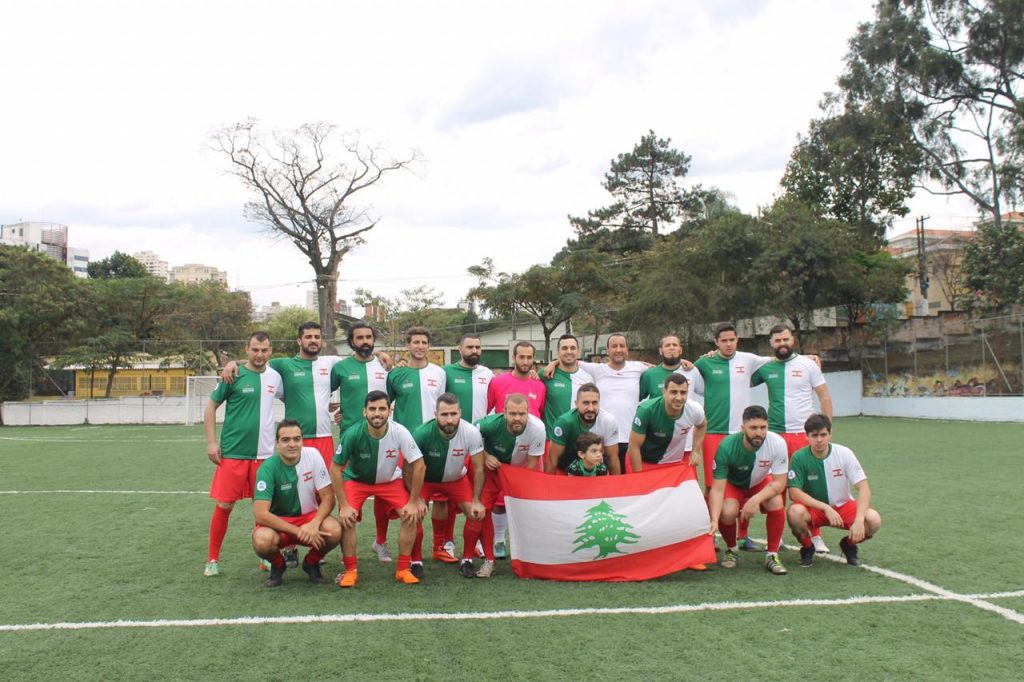São Paulo – Athletes from Lebanon, Venezuela, Tanzania, Guinea-Bissau, Mali, Cameroon, South Korea, the Democratic Republic of the Congo, Togo, Colombia, Haiti, Gambia, Angola, Nigeria, Niger and Benin are playing the 6th Refugee and Immigrant Cup. The tournament opens this Friday (4) at the São Paulo Soccer Museum.
The actual matches begin on Saturday (5), with the quarterfinals on Sunday (6), semifinals on the 13th, and the final on October 20. Lebanon, the only Arab team playing this year, is going up against Mali Saturday (5) at 10:30am. The first Saturday match will be Guinea-Bissau vs. Tanzania, at 9am. Next up is South Korea vs. Congo, at 1:30pm; Togo vs. Colombia, at 3pm; Haiti vs. Gambia, at 4:30pm; Angola vs. Nigeria, at 6pm; and Niger vs. Benin, at 7:30pm. Check out the event’s Facebook page.
This edition is themed Take a minute to listen to someone who left their country. Over the last few months, matches were played in Brasília, Curitiba and Recife. This is the biggest sports integration project for refugees and immigrants, involving some 20 national teams and 200 amateur players.
The event was created by NGO África do Coração, with backing from the United Nations High Commissioner for Refugees in Brazil (ACNUR) and the International Organization for Migration (IOM).
“Having a project of this kind is of the utmost importance in São Paulo, the biggest metropolis in Brazil, with the most refugees and immigrants and the most diversity. Through soccer we are able to convey many messages, because it brings together every race, color and social strata, on the stands and in the field. We organized the tournament to show that refugees have something to offer in many aspects,” said Refugee Cup coordinator Braima Mané.
Aside from the soccer, there’ll be a culture and food fair on Sunday (6), from 10am to 7pm, also in Vila Clementino. The free-admission fair will feature exhibitors from several countries, including Syria and Morocco; music, dancing, conversations, product showcases, typical foods etc. “We have created this space so refugees can show their talent, to get them to not be invisible. NGO África do Coração is on a struggle to integrate, advise and help with whatever it can,” said Mané.
Lebanon

Hassan El Zein is the captain of the 17-strong Lebanese team (pictured above). Last year, Lebanon lost its second match in the Cup and got eliminated. “We practice every Tuesday in [São Paulo neighborhood] Pari,” said El Zein, who’s lived in São Paulo for six years now and speaks Brazilian Portuguese very well. “I still have a bit of an accent, but I work at an electronics store where the staff is all Brazilians, so I learned quick,” said the native of Tyre, in southern Lebanon.
The Lebanese team is made up of immigrants who arrived in Brazil one, six, seven and even ten years ago, according to El Zein. Four of them are fluent in Portuguese. “I came to Brazil because there’s no work back in our country. You can’t make a living there, there are no opportunities,” he said. “Brazil is a welcoming country. Brazilians are good people. I consider myself a Brazilian.”
for six months with this team now. I hope we’ll win, of course,” concluded El Zein.
Quick facts
Refugee Cup
Matches on October 5, 6, 13 and 20
Rua Pedro de Toledo, 1.651 – Vila Clementino – São Paulo
Free admission
Culture Fair
October 6, 10am-7pm
Alameda Iraé, 35
Vila Clementino
Free admission
Translated by Gabriel Pomerancblum




